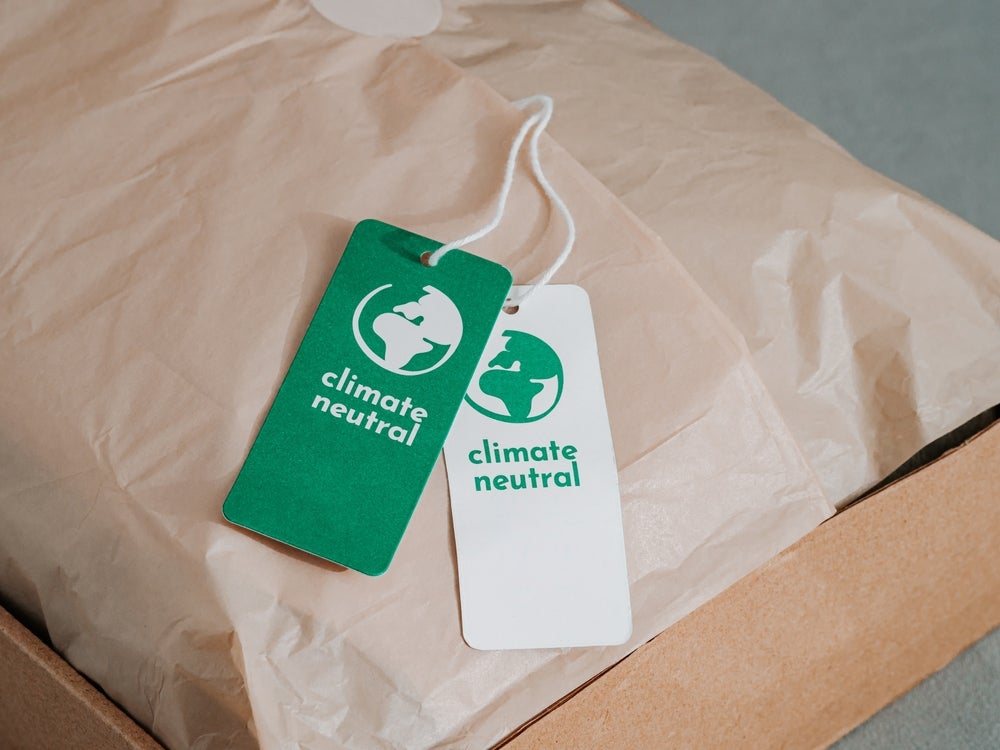Fashion
Can fashion finally put the eco back into economics?

It was hard to escape the importance of tackling climate change within the fashion sector at Germany’s 2024 biennial edition of the Techtextil and Texprocess exhibition.
From the talks on pending legislation and displays showcasing the latest advancements in sustainable technology, to the reusable water bottles handed out to us during the press conference, the need for change across the sector was felt at every step.
This year’s exhibitors were also keen to demonstrate sustainable innovations as part of the event’s ‘Econogy’ programme, which included a directory of sustainable products, talks led by industry experts and tours focused on green innovations.
The label took its name from environmental activist David Suzuki’s famous keynote address at the West Coast Green conference in California in 2008 in which he said: “Ecology is the study of home, while economics is its management. Ecologists try to define the conditions and principles that enable a species to survive and flourish. Yet in elevating the economy above those principles, we seem to think we are immune to the laws of nature. We have to put the ‘eco’ back into economics.”
Rising inflation and the cost of living crisis has seen consumers focus on affordability over sustainability recently, but the event was a timely reminder that apparel companies cannot ignore climate change if they wish to remain in business.
With this in mind, I was heartened to see outdoor apparel brand Patagonia share its latest advertising campaign last week with the slogan: “Fashion is none of our business.”
Access the most comprehensive Company Profiles
on the market, powered by GlobalData. Save hours of research. Gain competitive edge.

Company Profile – free
sample
Your download email will arrive shortly
We are confident about the
unique
quality of our Company Profiles. However, we want you to make the most
beneficial
decision for your business, so we offer a free sample that you can download by
submitting the below form
By GlobalData
Instead, the certified B-Corp said it is focused on making “gear that is multifunctional, repairable and timeless – because the longer it stays in play the better it is for the earth.”
The advert suggests that buying high quality products means consumers will need less of them – an idea that will surely have to be part of the mix if the apparel industry is ever going to truly become sustainable.
Top stories on Just Style last week…
US apparel industry against higher tariffs on apparel imports
A coalition of US apparel and retail organisations is urging the US Trade Commission to eliminate import tariffs on apparel sourced from key sourcing countries and to renew and expand the scope of the Generalised System of Preferences (GSP) to include certain apparel products.
Week in data: Primark H1, JD Sports acquisition, Express bankruptcy
Just Style’s round-up of this week’s news in numbers reveals why Primark revenue surged in H1 and takes a look at Express Inc’s store closures as part of its bankruptcy agreement.
US, Kenya sign $11m partnership deal for bolstering textile, apparel
President of the Republic of Kenya William Samoei Ruto shared that the East African country has entered into an $11m partnership deal with the United States Agency for International Development (USAID) to boost textile and apparel sub-sector to a new level.
Tapestry, Capri defend merger as US sues to block on monopoly concerns
Luxury fashion parent company of Coach and Kate Spade, Tapestry, Inc. maintains “full confidence” in its deal to acquire rival Capri Holdings Limited despite the US’ Federal Trade Commission (FTC) suing on concerns of market domination.
Gen Z goes behind the scenes of Puma’s supply chain
German sports brand Puma opened the doors of its supplier factories in Bangladesh, Vietnam, and Türkiye to showcase the social and environmental dimensions of its supply chain with Gen Z.
Mayo-maker Hellmann’s launches $1,352 food waste sneakers
World-famous mayonnaise-maker Hellmann’s Canada has launched footwear aimed at highlighting the high cost of food waste per household each year.
Tapestry, Capri defend merger as US sues to block on monopoly concerns
Luxury fashion parent company of Coach and Kate Spade, Tapestry, Inc. maintains “full confidence” in its deal to acquire rival Capri Holdings Limited despite the US’ Federal Trade Commission (FTC) suing on concerns of market domination.
Retraced unveils AI audit tool for supply chain transparency
Sustainability and compliance management platform Retraced has launched an AI-powered tool to improve sustainability performance, streamline audit processes, and minimise compliance risks.
Clean Clothes Campaign exits Fair Wear board to focus resource on workers
Global labour union Clean Clothes Campaign (CCC) has stepped down from its board and committee positions at non-profit Fair Wear Foundation to focus on promoting binding enforceable agreements for garment workers.
Futureproofing fast fashion – can it ever be good?
Fast fashion has built up a reputation of being environmentally polluting and harmful to people so governments are looking to police the way its retailers operate. But does this spell the end of the genre or are we about to witness a better behaved fast-fashion 2.0?



.jpg)







